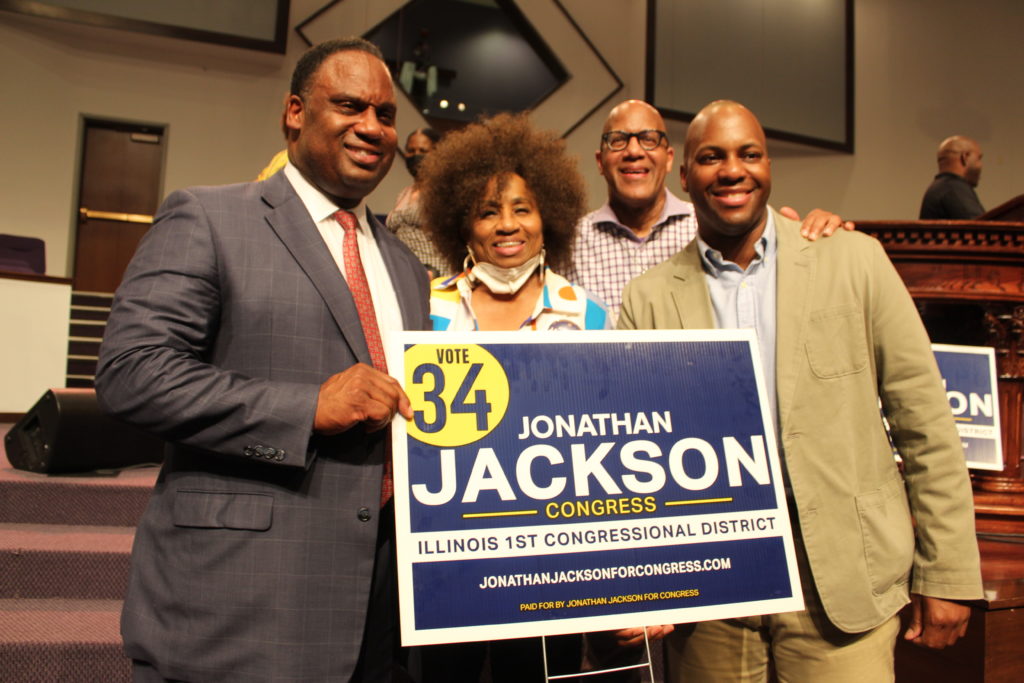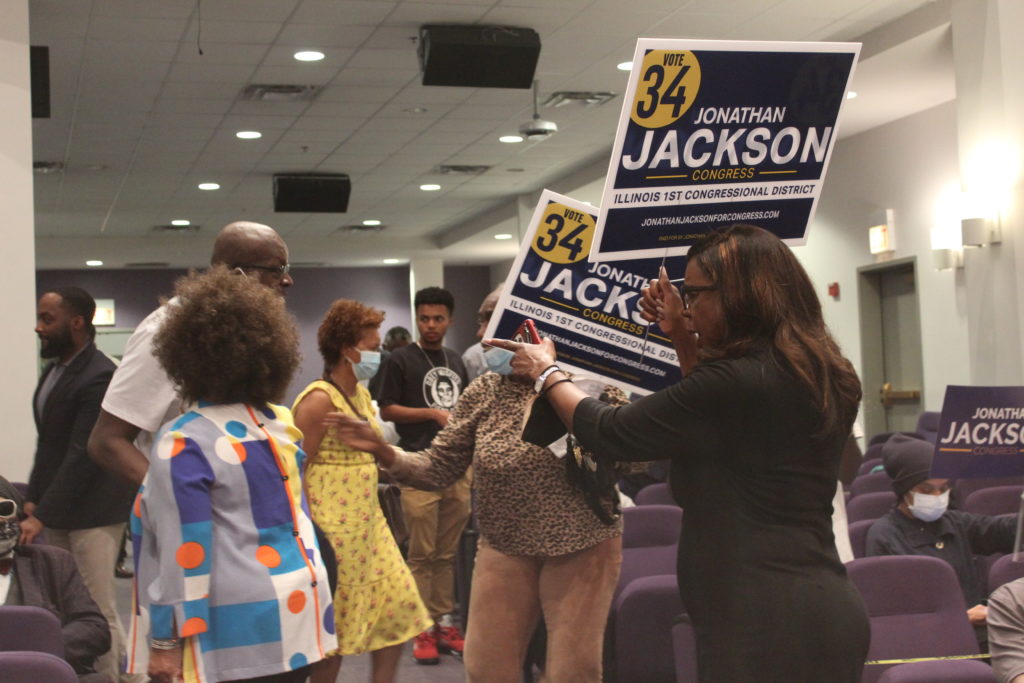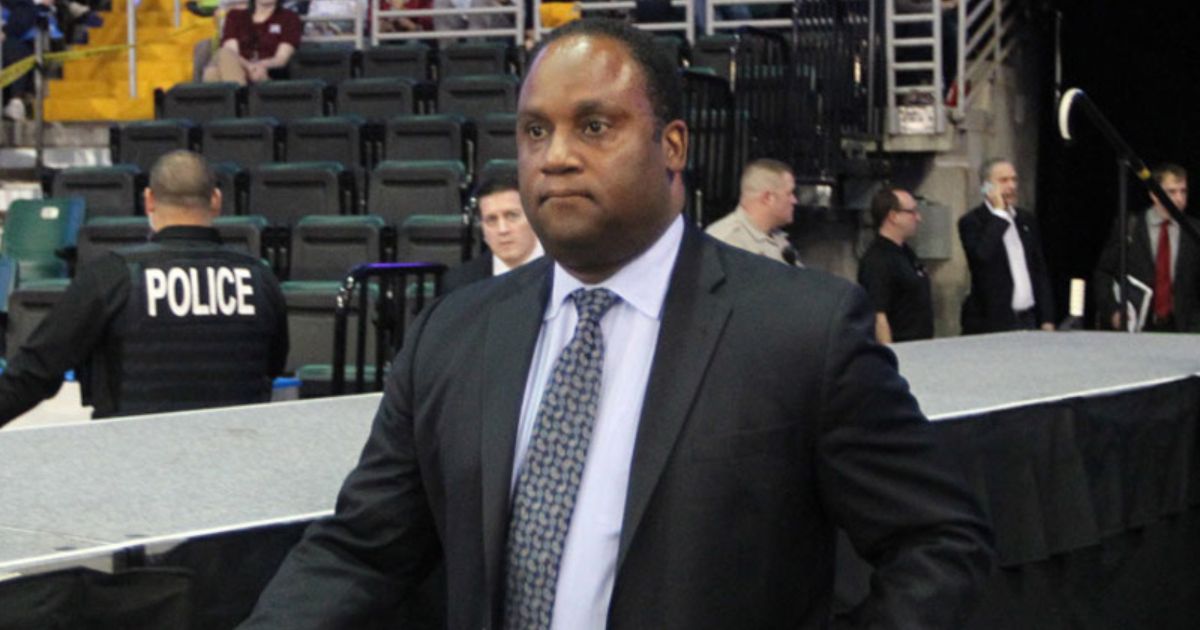Jonathan Jackson late Monday night gave strong support for social justice issues like abortion rights and reparations during a town hall meeting held at the New Covenant Missionary Baptist Church headed by Pastor Stephen J. Thurston.
The questions were fielded by Chicago Crusader reporter Erick Johnson and N’DIGO publisher Hermene Hartman. Santita Jackson was the moderator.
Johnson asked Jackson about his ideas on the economy, especially on inflation, his thoughts on the healthcare disparity in post-pandemic Black Chicago and would he support slave reparations.
On inflation and the economy, Jackson said when workers make $15 an hour that means $30,000 annually. Jackson said this issue has kept him up late at night many times. “We have to make sure that people have adequate food, transportation to work and housing.

(Photo by Chinta Strausburg)
“The federal government has to help people when they cannot help themselves,” Jackson said. “The federal government has to step up,” Jackson said 50 percent of workers make less than $20 an hour, 55 percent of workers don’t have enough money to make it to the end of the week, and many cannot put their hands on $2,000 in an emergency.
Referring to the economy and the rise of gas prices, Jackson said, “They are price gouging. That is the culprit.”
To Johnson’s question about President Biden wanting to reduce student loans by $10,000, Jackson said, “In 2006, President George W. Bush passed a bankruptcy reform bill.” He said under this bill businesspeople could buy cars and wipe out other expenses, but not student loans. “They put the onerous bill on our students.
“The student debt loan was $4.8 billion in 2006. Now the student debt market is $1.8 trillion,” Jackson said. He called on Congress to go back and revisit that law. He called for the elimination of all student debts. He also called for the elimination of the interest on student debt.
Jackson said the huge student debt loans has even affected personal relationships because students are reluctant to marry someone burdened with these loans. And he said if students can learn, the doors of opportunity should always be opened for them without the worry of racking up huge student loans.
Referring to Johnson’s question on the state of the economy, Jackson said there are 2 million cyber security jobs needed right now, a shortage of 14,000 airline pilots, a shortage of bus drivers and a shortage of train operators. He said not enough people are applying for policemen jobs.
Given the increase in crime by youth, Jackson said, “We have to capture this workforce and bring them back into the fold. We are 5 percent of the world’s population but 25 percent of those incarcerated,” Jackson said. “The vestiges of slavery are real. “I want to get their records expunged so that they can” become productive citizens.
On Johnson’s question about the economy, Jackson admitted it is “pretty strange,” but he was clear about the rise of gas prices. “They are profit gouging making big profits at the expense of the poor. Profit gouging is the real culprit.”

(Photo by Chinta Strausburg)
Jackson said African Americans are fully vested in this country. People are not going for this ideology of white supremacy” and that Blacks are not inferior and whites are not superior.
When you talk about reparations, Jackson said you must include institutions like Blacks not having equal access to mass transit within 20 minutes. “That’s called scheduled services, not mass transit,” or the lack of transportation for the far South Side and on the West Side.
“When seniors don’t have access to Walgreens or CVS within a mile of services,” Jackson said that is an example of institutions standing in the way of equal access to services and yet another reason for reparations.
“Reparations is absolutely imperative,” he said. “Jackson also wants the institutions of unequal opportunities for basic life needs to be repaired—equal services for everyone.






